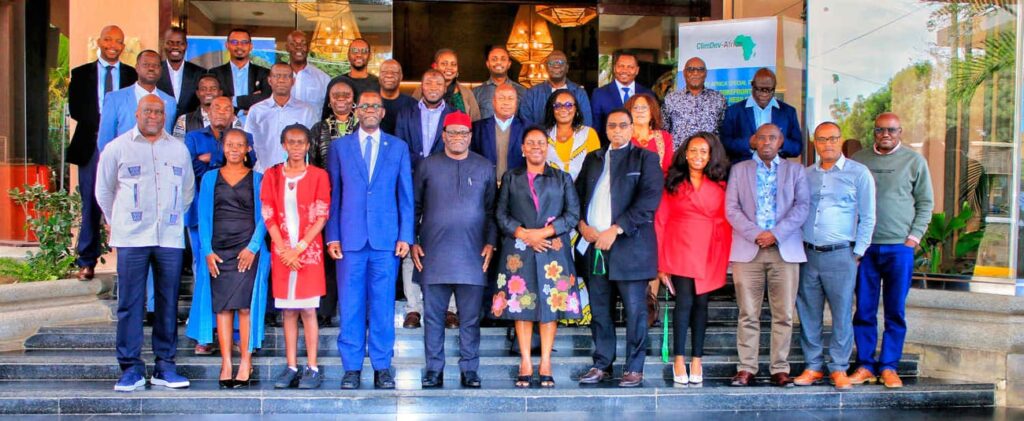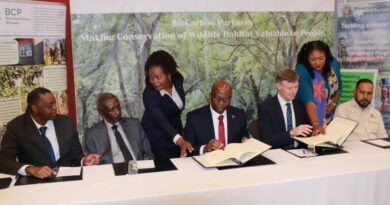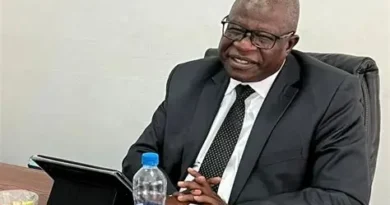Africa Scales Up Early Warning Systems Through ClimDev-Africa Phase II
Africa’s leading development institutions have pledged renewed commitment to strengthening continent-wide early warning systems as part of the second phase of the Climate for Development in Africa (ClimDev-Africa) programme.
The announcement was made during the ClimDev-Africa Phase II Planning Workshop, co-organised by the African Union Commission (AUC), the United Nations Economic Commission for Africa (UNECA) and the African Development Bank Group (AfDB). The workshop, held in Nairobi from 29–30 July, brought together climate scientists, policymakers and stakeholders to define priorities for the programme’s next decade.
At the heart of the deliberations was the shared goal of building robust, African-led early warning systems capable of saving lives, protecting livelihoods and underpinning climate-resilient growth.
Dr Alex Mubiru, AfDB’s Director General for the East Africa Regional Integration and Business Delivery Office, opened the workshop, emphasising the importance of African expertise: “This is about elevating African expertise and ensuring our systems can protect lives and livelihoods. Our US$6.2 million investment in multi-country early warning systems is just one way we are translating vision into impact.”
Dr James Murombedzi, Head of UNECA’s African Climate Policy Centre, highlighted the need for home-grown responses to climate change: “Our response must be led from within, and ClimDev-Africa empowers us to integrate climate action into every facet of development planning. The programme has become a trusted platform for action, research and capacity building.”
Between 2011 and 2023, Phase I of ClimDev-Africa supported 18 projects in 17 countries, benefiting over 42 million people. Achievements included training more than 60 meteorological experts, 30 per cent of them women, deploying 14 high-performance computing systems and installing 40 automatic weather stations.
The programme also strengthened forecasting capacity, successfully predicting desert locust outbreaks and supporting early interventions to protect food systems. It deepened the integration of climate data into national development frameworks and boosted collaboration among regional meteorological agencies.
Dr James Kinyangi, Coordinator of the ClimDev Special Fund, stressed that these investments were “not just in infrastructure, but in African capacity.”
Looking ahead, Phase II seeks to mobilise US$191 million from the AfDB’s Climate Action Window, bilateral donors and multilateral climate funds. The programme will focus on scaling up early warning systems, integrating climate data into policymaking, and aligning with the African Union’s 2022–2032 Climate Resilient Development Strategy and Agenda 2063.
Dr Sam Ogallah, Climate Change Coordinator at the AUC, highlighted ClimDev’s role in policy alignment: “This isn’t just a technical programme—it’s about implementing the vision of Agenda 2063 and securing the future of African communities.”
Representatives from the World Meteorological Organization (WMO) stressed the importance of collaboration between national services and regional hubs.
“Each country’s national meteorological service must remain the authoritative voice on early warnings,” said Dr Ernest Afiesimama, WMO Regional Programme Manager. “But these services are only as strong as the systems that feed them. Regional centres like ICPAC ensure countries have the tools, data and shared insights they need.”
Key regional centres participating included:
- AGRHYMET Regional Centre (Niamey, Niger – West Africa)
- African Centre of Meteorological Applications for Development (Niamey – Pan-African coordination)
- ECCAS Climate Prediction Centre (Douala, Cameroon – Central Africa)
- SADC Climate Services Centre (Gaborone, Botswana – Southern Africa)
- IGAD Climate Prediction and Applications Centre (ICPAC) (Ngong, Kenya – East Africa)
Together, these centres form the backbone of a continent-wide interoperable system, sharing data platforms, harmonising forecasting tools, and coordinating policy engagement.
On 1 August, delegates visited ICPAC headquarters near Nairobi, originally financed under Phase I. Now serving 11 East African countries, ICPAC provides real-time forecasts, seasonal outlooks and sector-specific advisories on agriculture, water, health and food security. Its high-performance supercomputing facilities also enable advanced modelling of floods, droughts and food production.
Dr Abdi Fidar, Acting Director of ICPAC, noted: “In an era of climate extremes, early warnings must be fast, local and reliable. What we’re doing here is saving lives, through science, regional cooperation and investment in African systems.”
The Nairobi workshop’s outcomes will feed into Africa’s position at the upcoming Africa Climate Summit (ACS-II) and COP30.
Dr Murombedzi summed up: “We have the science, the institutions, and the urgency, what we need now is scaled investment and global recognition. This workshop ensures Africa speaks with one voice on climate resilience.”
With ClimDev-Africa entering its second decade, the message is clear: Africa is not waiting for external solutions. It is building its own systems to transform climate risk into resilience, one forecast, one community, and one investment at a time.



